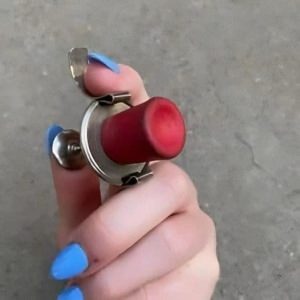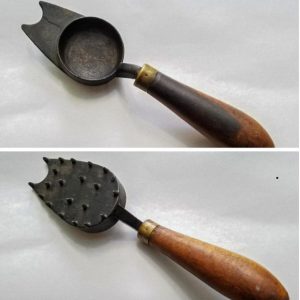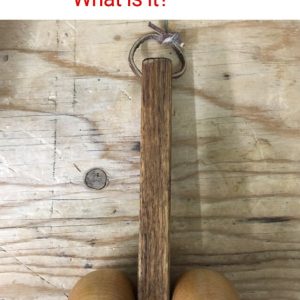In today’s fast-paced world, few things evoke nostalgia like the vintage shaving set. Consisting of a safety razor, shaving brush, and shaving mug, these classic tools once symbolized the art of self-care for generations of men. Shaving was more than a daily chore; it was a mindful ritual. Now, as traditional grooming makes a comeback, the vintage shaving set offers a glimpse into an era when patience, craftsmanship, and self-care defined a man’s morning routine. Let’s explore what made these tools so beloved and why they’re making a modern revival.
The Components of the Vintage Shaving Set

At the heart of the vintage shaving experience lies the elegance and simplicity of its key components. Each piece had a unique purpose in achieving the perfect shave, creating an experience that modern alternatives struggle to match.
- The Safety Razor: Built to last, the safety razor was crafted from durable metal and featured a single, replaceable blade. Unlike today’s disposable plastic razors, it was a tool men took pride in, often passing it down through generations. The safety razor’s weight and precision made shaving a refined experience.
- The Shaving Brush: Typically made from badger or boar bristles, the shaving brush was essential for creating a rich lather. Beyond its practicality, the brush offered gentle exfoliation, lifting facial hair for a closer shave. Lathering up became a tactile pleasure, adding depth to the ritual.
- The Shaving Mug: Often adorned with decorative patterns or engravings, the shaving mug was where soap turned into luxurious lather. This piece wasn’t just functional; it added a personal touch, making each shave feel intimate and refined.
Each element contributed to the unique appeal of vintage shaving. While modern razors prioritize convenience, the vintage set invited a slower, more mindful approach to grooming.
A Tradition Passed Down Through Generations
In the 19th and early 20th centuries, the vintage shaving set represented more than just a grooming routine—it was a rite of passage. For many, a first shave marked the transition from boyhood to manhood. Fathers would often pass down shaving techniques to their sons, teaching them how to handle the razor with skill and care. A first shaving set was more than a practical gift; it was a cherished symbol of growing up.
This daily ritual fostered pride and self-discipline. A young man’s first shaving set, frequently gifted by his father, became a treasured possession, often kept and used for years. In barbershops, the communal aspect of shaving was celebrated as men gathered to groom, share stories, and build camaraderie. Barbers wielded their tools with expert skill, transforming the simple act of shaving into an art form.
The Decline of the Vintage Shaving Set

By the mid-20th century, convenience began to take precedence over tradition. Disposable razors and electric shavers gained popularity, allowing men to shave quickly and without elaborate preparation. As a result, the beloved vintage shaving set faded from daily life, stored away in bathroom cabinets or forgotten in drawers.
With this shift to disposables, the mindful ritual of shaving began to disappear. No longer did men need to care for their razors or build a lather with skill; shaving became a task to be rushed through. Yet, while convenience won out for a time, the vintage shaving set never completely vanished. It found a place in the collections of enthusiasts who valued its craftsmanship and history, holding on to its timeless appeal.
Interesting Facts and History Surrounding the Vintage Shaving Set

Understanding the history behind the vintage shaving set only adds to its allure. Here are some fascinating insights about these classic tools:
- The Birth of the Safety Razor: Invented by the Kampfe Brothers in 1880, the safety razor was revolutionized in 1901 by King Camp Gillette, who introduced the disposable razor blade. This innovation made shaving safer and more accessible, establishing the razor as a grooming staple.
- Barbershop Culture: In the early 1900s, barbershops were social hubs where men discussed politics, shared news, and bonded. The barber, a respected community figure, provided not only a grooming service but also a place of camaraderie and connection.
- Artisanal Shaving Brushes: Brushes made from badger hair were prized for their water retention and softness. Many were handmade, making them highly valued items in a man’s grooming kit and reflecting an appreciation for artistry in everyday tools.
- The Rise of Modern Razors: By the 1970s, disposable razors dominated the market. Brands like Gillette and Schick surged in popularity, and the vintage shaving set became more of a nostalgic item. Recently, however, there’s been a renewed interest in these traditional tools, with many men seeking their superior quality and craftsmanship.
The Modern Revival of the Vintage Shaving Set

Today, vintage shaving sets have made a strong comeback, especially among those who value tradition, sustainability, and craftsmanship. In a world where disposable products are everywhere, the idea of using a high-quality, reusable shaving tool holds significant appeal.
For many, the process of lathering a brush, preparing a mug, and carefully using a safety razor provides a sense of calm in our busy lives. It’s a deliberate, mindful ritual that brings peace, grounding the user in a moment of self-care. For some, it’s about connecting with the past, while others simply appreciate the eco-friendly aspect of a reusable tool.
Communities dedicated to traditional shaving have flourished online, where enthusiasts exchange tips, trade vintage razors, and discuss maintenance. Barbershops have embraced the trend as well, offering classic wet shaves that harken back to the early 20th century experience.
Why the Vintage Shaving Set Still Matters
In an era of instant gratification, the vintage shaving set represents a return to quality, tradition, and the joy of a well-executed task. Every element, from the precision of the safety razor to the artistry of the shaving brush, speaks to a time when daily routines were celebrated, not rushed.
Using a vintage shaving set is more than a way to groom; it’s about reconnecting to a timeless tradition. The experience encourages mindfulness and transforms an ordinary task into a rewarding ritual. This sense of nostalgia and respect for craftsmanship explains why vintage shaving continues to attract those who appreciate a slower, more intentional lifestyle.
Conclusion
The vintage shaving set is more than just a trio of grooming tools; it’s a symbol of an era when self-care was a treasured art form. With every brush stroke and razor glide, there’s a connection to history, tradition, and an appreciation for craftsmanship. As more men rediscover the charm of vintage shaving, this timeless ritual reminds us that some things truly withstand the test of time. Embracing a vintage shaving set is about more than achieving a closer shave—it’s about adopting a more mindful, meaningful approach to life’s daily routines.


